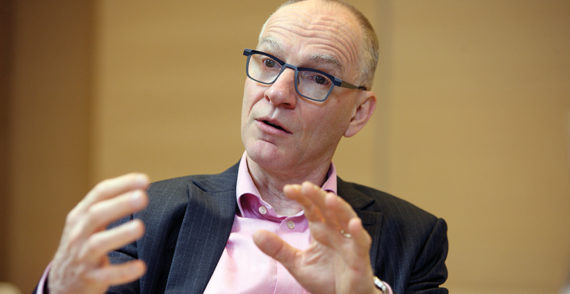In this series of articles, we will familiarize with the responsible sourcing stories from Brazil, China, and wood sourcing.
Ensuring responsible sourcing forms an integral part of our supplier performance management. Working closely with our suppliers is the way to ensure that our suppliers understand and meet all of the company’s requirements on sustainability and responsibility.
The primary goal of these supplier requirements is to recognize and reduce risks related to business operations. They also aim to support suppliers in their continual improvement efforts. On-site visits are one way of assessing suppliers.
Suppliers are selected for auditing by UPM based on risk assessments. Audits are based on UPM’s supplier requirements compiled in accordance with international standards (ISO 9001, 14001, OHSAS 18001, SA8000). Records show that the audits have improved working conditions and safety at work at a number of sites.

Petri Heinonen
Petri Heinonen, Manager, Supply Chains, recently conducted a supplier audit in eastern Brazil, where he scrutinized the operations of Imerys, UPM’s kaolin supplier. UPM uses kaolin in the paper production process. Imerys was selected for auditing due to certain risks related to mining and land management in Brazil.
Nina Norjama, Director, Responsibility Development and Support comments the observations.
Petri: Imerys Rio Capim Caulim Co.’s production facility is located in Barcarena in the state of Pará. The actual open-pit mines are located 160 kilometres inland in the middle of the rainforest. Thousands of hectares of land have been reserved for extraction, but only a fraction of the rainforest area has been cleared for extraction. We were keen to look into how the extraction permits were obtained and what happens to the land after all the kaolin has been extracted. In the mining area, we saw a tree nursery where native tree species were being grown. This way rainforests are being restored in areas where extraction has been completed.
Nina: Had restoration already started?
Petri: Yes, it had, and everything seemed to be going well.
Nina: Tell me about the people. What are the local surroundings like?
Petri: There are nine poor neighbourhoods, favelas, around Barcarena. Imerys has created a social programme for the residents providing support such as remedial education and activities for children as well as dental care and water workouts. In the jungle around the open-pit mines there are villages that are even poorer than the favelas. The company also helps the village residents by providing health education and buying vegetables from them for their canteen. Nina: What about the factory itself? Can you tell me about the working conditions there? Petri: I talked to some of the factory workers at random. I asked them whether they had had holidays and whether the company had paid them their wages. I also reviewed the employee register and working hour tracking system. I found everything to be at a good level. The company also had a programme to employ people with disabilities.
Learn more about responsible sourcing at UPM »
Read the next article on the audits in China »
Helen Partti
